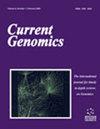HPV16 Genomes: In Silico Analysis of E6 and E7 Oncoproteins in 20 South American Variants
IF 1.4
4区 生物学
Q4 BIOCHEMISTRY & MOLECULAR BIOLOGY
引用次数: 0
Abstract
Background: Human papillomavirus (HPV) is the main risk factor for the development of squamous cell cervical cancer, and E6 oncoprotein and E7 oncoprotein are important components of the viral genome and its oncogenic potential. It is known that different viral variants of HPV16 have different pathology and impact on the development of neoplasia, although few studies have been performed on South American variants. Objective: Therefore, the present study aimed to analyze in silico the genomic diversity of HPV16 in 20 complete genome variants of South America in the National Center for Biotechnology Information (NCBI) database. Methods: We performed a descriptive study to characterize the polymorphic regions of the E6 and E7 genes in HPV16 variants, using software for genomic data and single nucleotide polymorphism (SNP) analysis and others for phylogenetic analysis. Results: The variants analyzed included six SNPs linked to cancer (A131G, G145T, C335T, T350G, C712A, and T732C) and significant variation (798 nucleotide substitutions). Despite this, the variants showed low genetic diversity. Eighteen variants of unclear significance (VUS) were identified, 10 of which were in the coding E6 regions and 8 in the coding E7 regions. The prevalence of lineage D variants is of concern due to their pathology in cervical cancer and requires more research and epidemiological vigilance regarding their prevalence in the population. Conclusion: study may contribute to future research on South American variants of HPV16, their pathogenicity, and the development of treatments.HPV16 基因组:对 20 个南美变体中 E6 和 E7 肿瘤蛋白的硅学分析
背景:人类乳头瘤病毒(HPV)是鳞状细胞宫颈癌的主要危险因素,而 E6 肿瘤蛋白和 E7 肿瘤蛋白是病毒基因组及其致癌潜能的重要组成部分。众所周知,HPV16 的不同病毒变体具有不同的病理特征,对肿瘤的发展也有不同的影响,但针对南美变体的研究却很少。研究目的因此,本研究旨在对美国国家生物技术信息中心(NCBI)数据库中南美洲 20 个完整基因组变体中的 HPV16 基因组多样性进行硅分析。方法:我们使用基因组数据和单核苷酸多态性(SNP)分析软件以及其他软件进行系统发育分析,对 HPV16 变体中 E6 和 E7 基因的多态性区域进行了描述性研究。分析结果分析的变异包括六个与癌症相关的 SNP(A131G、G145T、C335T、T350G、C712A 和 T732C)和显著变异(798 个核苷酸置换)。尽管如此,这些变异仍显示出较低的遗传多样性。发现了 18 个意义不明的变异(VUS),其中 10 个位于编码 E6 区域,8 个位于编码 E7 区域。由于 D 系变异在宫颈癌中的病理作用,其流行情况令人担忧,因此需要对其在人群中的流行情况进行更多研究并提高流行病学警惕。结论:这项研究可能有助于今后对南美洲 HPV16 变体、其致病性和治疗方法的开发进行研究。
本文章由计算机程序翻译,如有差异,请以英文原文为准。
求助全文
约1分钟内获得全文
求助全文
来源期刊

Current Genomics
生物-生化与分子生物学
CiteScore
5.20
自引率
0.00%
发文量
29
审稿时长
>0 weeks
期刊介绍:
Current Genomics is a peer-reviewed journal that provides essential reading about the latest and most important developments in genome science and related fields of research. Systems biology, systems modeling, machine learning, network inference, bioinformatics, computational biology, epigenetics, single cell genomics, extracellular vesicles, quantitative biology, and synthetic biology for the study of evolution, development, maintenance, aging and that of human health, human diseases, clinical genomics and precision medicine are topics of particular interest. The journal covers plant genomics. The journal will not consider articles dealing with breeding and livestock.
Current Genomics publishes three types of articles including:
i) Research papers from internationally-recognized experts reporting on new and original data generated at the genome scale level. Position papers dealing with new or challenging methodological approaches, whether experimental or mathematical, are greatly welcome in this section.
ii) Authoritative and comprehensive full-length or mini reviews from widely recognized experts, covering the latest developments in genome science and related fields of research such as systems biology, statistics and machine learning, quantitative biology, and precision medicine. Proposals for mini-hot topics (2-3 review papers) and full hot topics (6-8 review papers) guest edited by internationally-recognized experts are welcome in this section. Hot topic proposals should not contain original data and they should contain articles originating from at least 2 different countries.
iii) Opinion papers from internationally recognized experts addressing contemporary questions and issues in the field of genome science and systems biology and basic and clinical research practices.
 求助内容:
求助内容: 应助结果提醒方式:
应助结果提醒方式:


